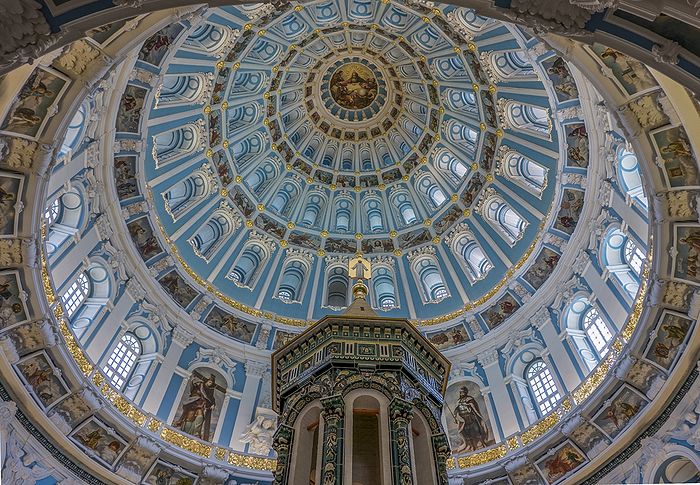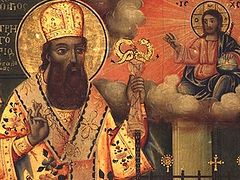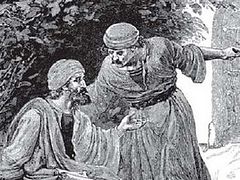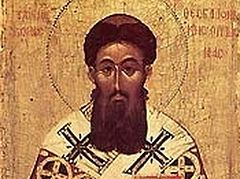 Photo: aritkin.livejournal.com
Photo: aritkin.livejournal.com
It is characteristic of human beings to begin some work, labor, or podvig with enthusiasm and zeal, but then to weaken, forget, and abandon what they have begun. This also happens constantly with the podvig of fasting. A person becomes contrite for a short time, condemns his former works, and steps upon the path of life that his conscience and Christ’s Gospel show him; he becomes more attentive to every warning of his conscience and at first comparatively easily throws off his former temptations. However this usually does not last long. First his former attentiveness slackens and the person no longer hears many of his conscience’s suggestions, and then when the attention is slackened the reserves of spiritual strength that he had gathered through his spiritual efforts and the podvig of fasting gradually wanes, he completely weakens spiritually, and can no longer arise and walk the path he had started.
Knowing this, the Holy Church as if intentionally after the first week of Great Lent, when it led its children into especially increased fasting, reminds us today about how easily the attention can weaken, and then the whole soul falls into a state of paralysis; it reminds us of the words of today’s Epistle reading: Therefore we ought to give the more earnest heed to the things which we have heard, lest at any time we should let them slip (Heb. 2:1). And in the Gospel reading, which recalls the paralytic, the Holy Church warns us of spiritual paralysis.
It recalls the Christians who came from the Jews, who had already endured the great podvig of suffering for Christ and yet had ceased to be attentive to the words of preaching, who had become slack from temporary temptations, and it points to the example of the paralytic, at how such inattentiveness ends up once it has begun to slacken—total spiritual paralysis in which a person is no longer able to rise up and do a single good thing, even weakening so much in the faith that only the intercessions of someone of stronger faith, the saints (as the paralytic was healed by the faith of those who carried him), returns him to the path of salvation. Even when Christ comes, that person does not have the spiritual strength to rise up and go to meet Him, to enter into the open doors of His heavenly bridal chamber.
But now Christ is not visibly near us as He was near the paralytic; He will come again to Earth only at the end of time, and only the vigilant will meet Him, like the wise virgins who kept their vessels filled with oil for their lamps. Now Christ is in Heaven, and how hard it is for man to climb into the heavens—ascent there is harder than climbing a ladder reaching to heaven itself. It is a hundred times harder, because forcing oneself to work towards the good is much more meaningful than the work of ascending an ordinary mountain. Is it possible for one who lives on earth to climb up to heaven? Could this be no more than an empty dream that people of this world and the worldly wise simply laugh at?
Truly, ascent into heaven could seem a strange, unattainable dream if Christ had not already gone up their as a forerunner and not opened the way to all His saints. When the Old Testament Psalmist exclaimed, The heavens declare the glory of God, and the firmament proclaimeth the work of His hands... Their sound hath gone forth into all the earth, and their words unto the ends of the world, was he speaking only of the visible heavens, only the of visible sun, which comes forth like a bridegroom from his chamber (Ps. 18:1, 4–5)? Wasn’t the Psalmist speaking more of other heavens—of the holy apostles who spread the Gospel of Christ to the ends of the earth, like rays of the Sun of righteousness bringing His light to the ends of the universe? Didn’t they become the first stars in the new spiritual heaven? And wasn’t it about them that the seer of mysteries, St. John [the Theologian] had his revelation, when he saw the sign of a woman clothed in the sun (Rev. 12); that is, the Christian Church clothed in Christ from the days of her children’s baptism, and on the woman’s head a crown of twelve stars; that is, the twelve apostles of Christ. And if according to the same vision the dragon-devil drew after himself a third part of the stars, that is, a multitude of fallen spirits, then didn’t a multitude of new stars shine forth in their place in the spiritual heaven—the saints of God, by which the Redeemer Christ filled the place of the fallen angels?
Thus, heaven is not empty; it has already been settled by a multitude of the spirits of the righteous, from whence they so often appear to those living on earth. If that is so, then spiritual ascent is possible. If it seems impossible, then it is because we ceaselessly burden ourselves with the weight of life’s passions, with which the heart itself, the source of our life, binds us to earth and makes ascent to heaven impossible. Isn’t an ordinary person’s thought capable of flying around heaven? After all, if all our thoughts were to constantly fly to the heavens, if the heart itself would be carried there on the wings of fiery love for the “desired” Christ, Whom man has taken into his heart like the holy hieromartyr Ignatius,1 then what could hinder man’s ascent “to the mountain of the Lord”, to the very heavens? No matter how high are the heavens, no matter how high be the mountain of the Lord and the spiritual path to its ascent, man can make this ascent if only he would throw off, especially from his heart, the yoke and heavy shackles of sinful passions and habits. And especially easily do the saints climb up to heaven who have taken such care to unencumber their souls of the burden of life’s passions through fasting and prayer. Wasn’t Enoch of the Old Testament, who had fasted from all evil and walked only before God, taken to heaven in a living body? Didn’t Moses, having purified himself by a forty-day fast, ascend in his body the mountain of the Lord but in spirit to the very heavens and “saw the One Who Is,” “shaking the dust from his mind’s eye”?2 Isn’t this how Elias became a “man who walked in heaven”, having purified himself like Moses with a forty-day fast, and the Holy Church proclaims of him, “Consider then, my soul, this ascent”?3
That is how the saints ascended to heaven. But having barely ascended the first step of Great Lent, we have already stopped observing carefully where the Lord’s path is leading us. Having only just remembered (in the canon of St. Andrew of Crete) so many saints of the Old and New Testaments who have walked this path [of fasting] in order to strengthen themselves, we have again fallen onto the bed of spiritual illnesses and paralysis, each having just barely, sorrowfully, it would seem, proclaimed about himself: “I have been harnessed with a heavy burden, O Savior”,4 and have already zealously begun from day to day, hour to hour, to multiply that burden with which we not only can’t ascend to heaven but cannot even move a single member of the soul freely in order to do something pleasing to the Lord.
What can prevent the soul from flying up there? The body? But let it lie in the grave to the end of time; will the spirit be bound to the dust hidden in the bowels of the earth if while living on earth the man was not attached to anything earthly? Could the weight of the body be a hindrance to the spirit that has saved up within himself such a multitude of holy thoughts, feelings, and desires, like a large air balloon filled with lightweight gases that not only rises up itself but also carries with it a much greater weight? Moreover if a heart has come to love the Lord with an all-encompassing love that is strong as death, it has already flown up to the Lord. That person has already in his earthly life discovered heaven and paradise in his own heart; living on earth he has gone to live in heaven, in paradise, and does not notice anything earthly, passes it by, does not become bound to anything. As a person captivated by blessed earthly love he notices nothing else—neither want nor suffering.
How needful it is for us to rise up more often to heaven if only in our thoughts, if only in the fiery desires of our hearts, to languish for heaven from whence man fell and weep for paradise lost! One holy thought is followed by another, a multitude of them are stored up, and the soul filled with them will easily head for the heavenly heights without being held back. It is hard to climb a mountain that reaches into the heavens, but step-by-step, one can gradually and imperceptibly ascend without any particular labor, especially since the Lord gives ceaseless help and delight of heart to him who seeks Him, showing him what Eye hath not seen, nor ear heard, neither have entered into the heart of man, the things which God hath prepared for them that love him (1 Cor. 2:9).
The Lord is able to strengthen your steps for further spiritual ascent, and give growth to the spiritual shoots that have begun to arise in your souls. May the prayers of the Holy Church that are often pronounced by the lips of a bishop be fulfilled on you: “Look down from heaven, O God, and behold, and visit this vine, and strengthen it, for Thy right hand has planted it.”
May the words be fulfilled on you that Hosea the prophet spoke of Israel, about which I have reminded you here: I will be as the dew unto Israel: he shall grow as the lily, and cast forth his roots as Lebanon. Ephraim shall say, What have I to do any more with idols? I have heard him, and observed him: I am like a green fir tree. From me is thy fruit found. Who is wise, and he shall understand these things? prudent, and he shall know them? (Hos. 14:5–9).



